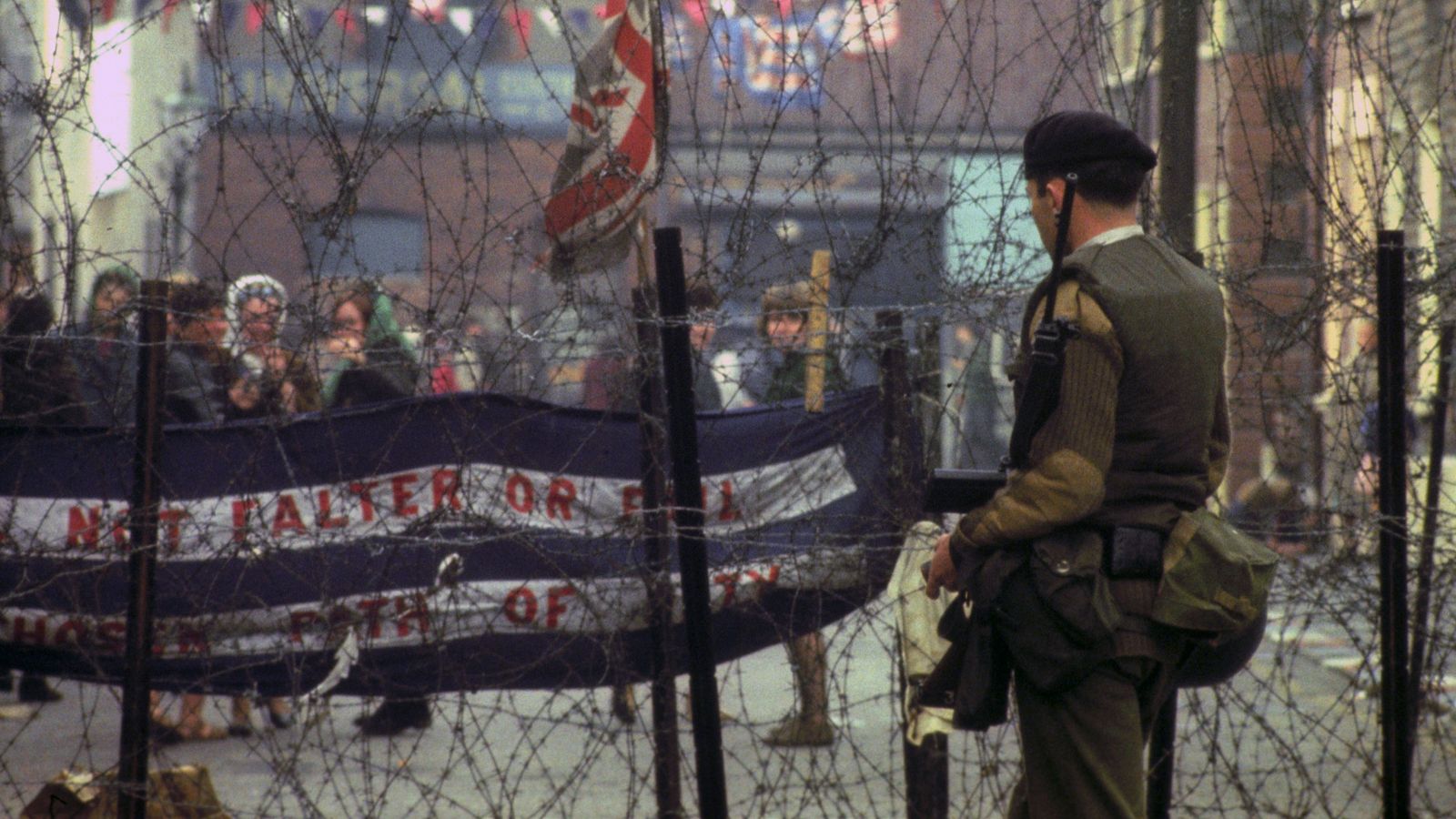A controversial law that would effectively end prosecutions related to The Troubles has passed its final hurdle in the Commons – despite anger from all sides on the island of Ireland.
MPs today approved the Northern Ireland Troubles (Legacy and Reconciliation) Bill, which will stop new cases and inquests being opened into killings on both sides of the conflict.
Instead, conditional amnesty will be offered to those who reveal information about the incidents to a new truth recovery body.
Read more: Concrete scandal dominates first PMQs since recess
Inspired by Nelson Mandela’s Truth and Reconciliation Commission in South Africa, the Independent Commission for Reconciliation and Information Recovery will also produce a historical record of what is known in relation to every death that occurred during the Troubles.
Northern Ireland Secretary Chris Heaton-Harris said he believed the bill – which will now return to the Lords to be approved before becoming law – would “draw a line under the past”, and it has received support from a number of veterans’ organisations.
However, there is much wider criticism of the plan, with victims groups saying the law would protect the perpetrators of the killings, rather than offering justice.
All the political parties in Northern Ireland are also united against the legislation, as well as the government in Dublin.
Read more:
The Good Friday Agreement 25 years on
Bloody Sunday: A ‘watershed’ in the history of The Troubles
Irish foreign minister Micheal Martin told the Financial Times this week that ministers were seeking legal advice over whether the bill breaches Article 2 of the European Convention on Human Rights – “right to life” – meaning it could be challenged in the courts.
If the Irish government launches a legal battle, it will only be the second time Dublin has taken the UK to court, with the last case over actions in Northern Ireland taking place 52 years ago.
More than 3,500 people were killed during the Troubles, including over 1,000 members of the security forces.

